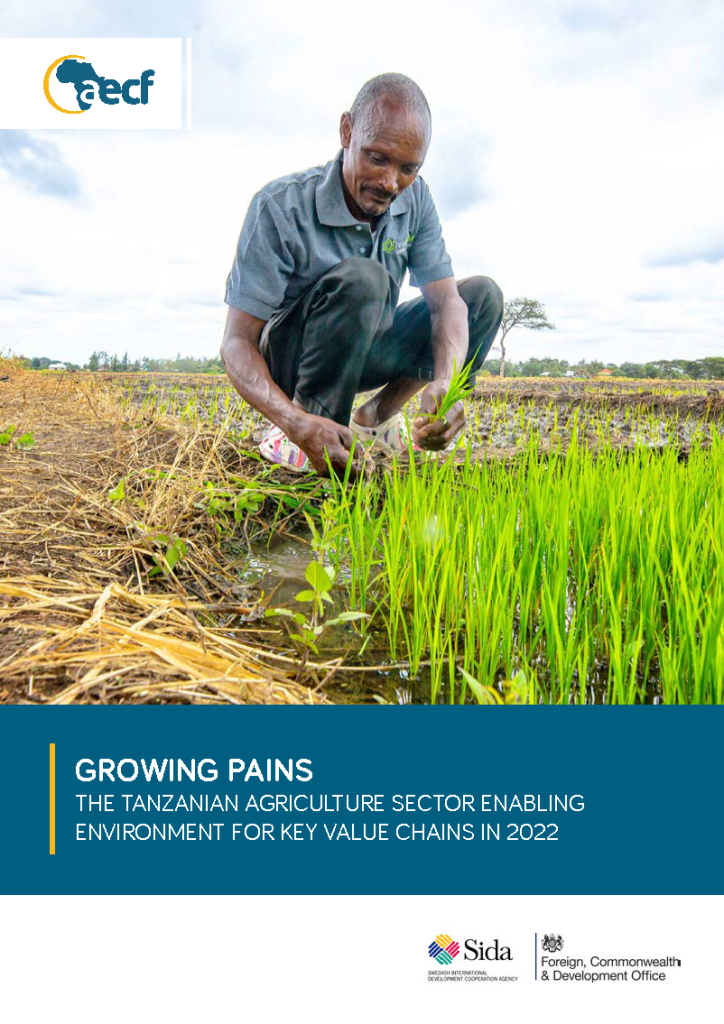Publications
The Tanzanian agriculture sector enabling environment for key value chains in 2022
Publications
The Tanzanian agriculture sector enabling environment for key value chains in 2022
Tanzania’s credentials as a stable investment jurisdiction – from a safety, security, and geographical perspective, complete with a long coastline and status as a transit route for several landlocked neighbors – have drawn large-scale investors to the country across various sectors. Specifically, Tanzania’s diversified economy sees large-scale investment across many sectors, including agriculture, oil and gas, mining, manufacturing, telecoms, logistics, and tourism.
Agriculture remains one of the most important sectors of Tanzania’s economy, responsible for approximately 25% of GDP and 85% of exports. It is estimated that agriculture is the main economic activity for 70% of Tanzanian households, and 75% of all Tanzanian jobs are within the agricultural sector, with up to 80% of all agricultural produce being produced by smallholder farmers. As such, robust and inclusive growth in the agriculture sector is critical for Tanzania to achieve economic transformation and poverty reduction, with the sector’s benefits reaching the lowest income and most vulnerable groups in rural areas.
This white paper is intended to help investors, policymakers, donors, and other market intermediaries better understand the current agriculture-enabling environment in Tanzania and thereby support increased investment in the sector. It provides an impartial, evidence-based overview of the enabling environment for the agricultural sector as a whole and undertakes a deep dive into five key value chains: domestic horticulture, export horticulture, semi-perishables (with a focus on potato and ginger), poultry and maize seed.
Throughout the white paper, key cross-cutting challenges and opportunities are also highlighted. A series of recommendations to a broad range of stakeholders are offered to help improve the investment environment for agriculture and through this, to improve the lives and incomes of millions of farmers in agricultural value chains across the country.

